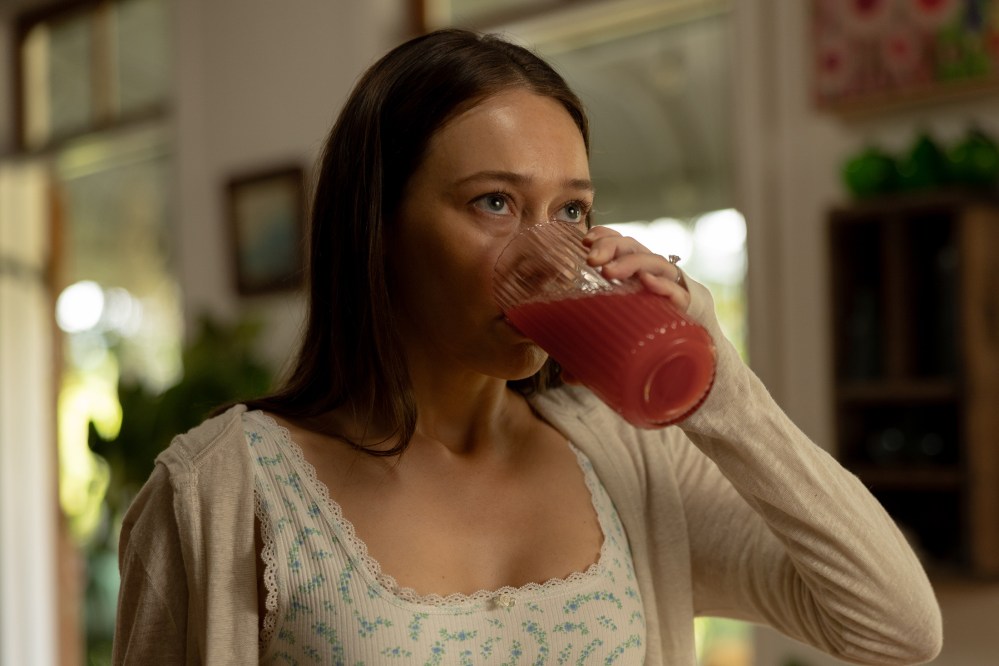The popular new Netflix series, “Apple Cider Vinegar,” based largely on the true story of Australian wellness influencer and fraudster Belle Gibson, affected me deeply. Gibson claimed her wellness treatments cured her terminal brain cancer, a brazen and consequential lie that risked the lives of her followers.
As a two-time breast cancer survivor, I know cancer treatments are not for the fainthearted or noncompliant. But they have kept me — and millions of others — alive. Meanwhile, research shows patients who reject or delay the advice of their doctors are much more likely to die.
Today, after an ordeal including surgery, radiation and chemotherapy, I am 10 months cancer-free. And free, also, to binge this drama, enraged by the premise.
In the warped world inhabited by so-called wellness warriors, a strong person rejects conformity, and a weak person passively complies with the medical establishment.
In the warped world inhabited by so-called wellness warriors, a strong person rejects conformity, and a weak person passively complies with the medical establishment. This argument distorts the global medical community, twisting “the establishment” into a nefarious moneymaking conspiracy. But while Big Pharma does rake in billions, cancer treatment is not a scam. And influencers who try to lure vulnerable people away from established science are toxic, in every sense of the word. Just as we have seen with Covid deniers and vaccine skeptics, disinformation can kill.
I could not watch any movie, series, program or TEDx talk on cancer while I was in the middle of my own treatments and recovery. There was nothing entertaining about the stories, or the characters — too many of whom died. I just knew I didn’t want to be like them.
When I was first diagnosed with Stage 1 breast cancer in 2006, I eagerly did everything my surgeon and oncologist told me to do. I got the lumpectomy. I submitted to the prescribed brachytherapy (internal seed radiation) twice daily for one week and many years of Tamoxifen, a hormone-blocking medication with uncomfortable and inconvenient side effects.
I wanted to live. And I trusted my doctors and medical team wanted me to live as much as I did.
A single mom with sole custody of three sons, then 13, 16 and 18, I wanted to see them all through high school, college, weddings, my grandchildren and my eventual retirement.
Almost two decades later, in June 2023, a second breast cancer identified as triple-negative, invasive, aggressive Stage 3 showed up on my ultrasound. The three tumors measured 7 centimeters all together. Once again, I did absolutely everything my oncologist, surgeon and cardiologist ordered — including eliminating alcohol after reading about the link between drinking and cancer. I also gave up diet soda at the suggestion of my oncologist. Why not?
Because the truth is that cancer is scary. And highly motivating. The other main protagonist in “Apple Cider Vinegar” is Milla Blake, a character who seems at least partly inspired by a real woman named Jessica Ainscough. Diagnosed with a rare cancer in her early 20s, Ainscough eventually stopped chemo and adopted an intense (and unproven) regimen of juices and coffee enemas. I deeply empathized with her honesty, vulnerability and courage as she searched for answers. She was aiming to fight for herself, not build a wellness empire based on lies.
But Ainscough also reportedly convinced her mother to forgo doctor recommendations and try the alternative therapy route. Her mother died from breast cancer in 2013. Ainscough would succumb to her own cancer a few years later. A tragedy layered on top of a tragedy.
The U.S. Centers for Disease Control and Prevention reports that in 2022, the latest year numbers are available, over 600,000 people in the United States died from cancer. There are 18 million people with a history of cancer who are still alive, according to the American Cancer Society.












